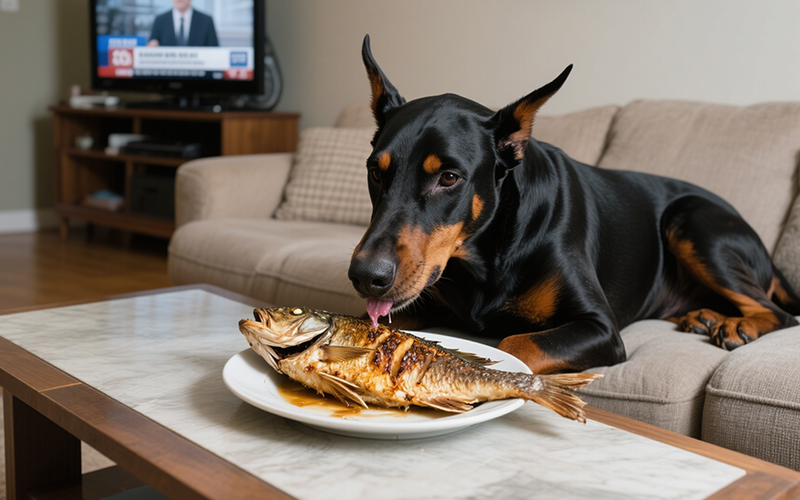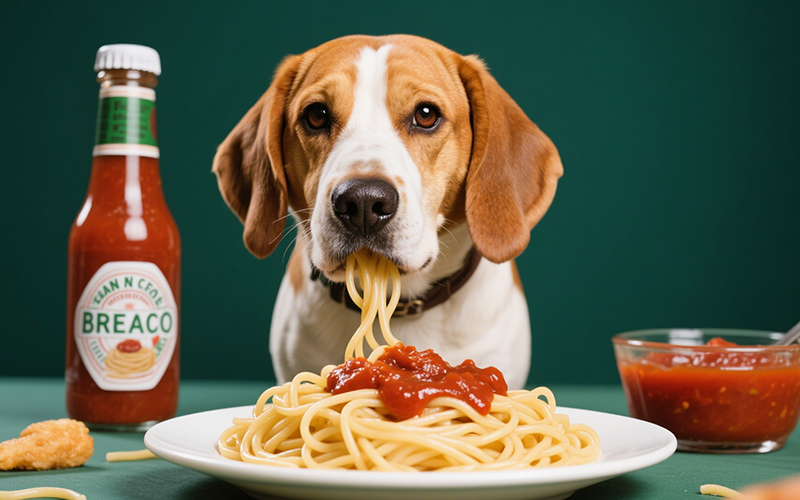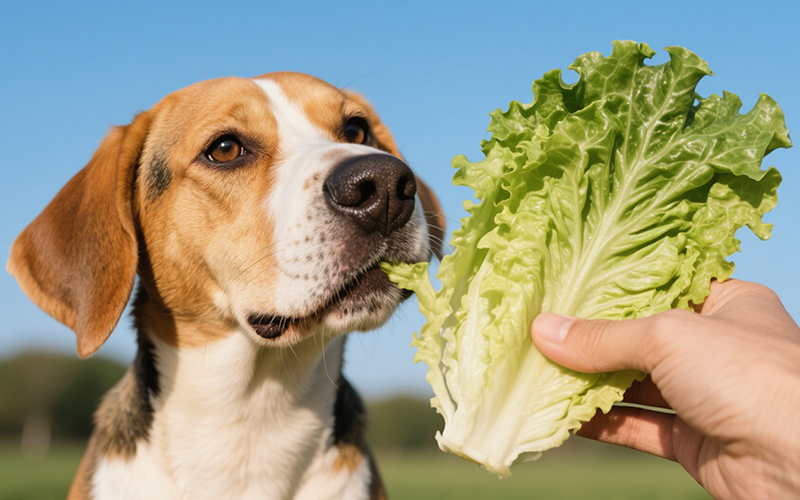Can Dogs Eat Thyme? The Ultimate Vet-Approved Guide to This Aromatic Herb for Your Canine Companion
- 30 Apr 2025 09:58
As pet parents, we often find ourselves sharing our homes, hearts, and sometimes, even our snacks with our furry friends. When cooking with fresh herbs, the fragrant aroma of thyme might fill your kitchen, leading to the inevitable question: can dogs eat thyme? It's a valid concern, as many human foods can be harmful to dogs. The good news is that common garden thyme (Thymus vulgaris) is generally considered safe for dogs, and may even offer some potential health benefits when given in appropriate, small amounts. However, like any food item outside their regular diet, there are important nuances and precautions to consider.
This comprehensive guide delves into the world of thyme for dogs, exploring its safety, potential benefits, associated risks, and the correct way to offer it. We aim to provide you with expert-driven, trustworthy information, adhering to EEAT (Expertise, Authoritativeness, Trustworthiness) principles, to help you make informed decisions about your dog's diet and well-being.

What Exactly is Thyme? A Closer Look at This Common Herb
Thyme is a perennial herb belonging to the mint family, Lamiaceae. Native to the Mediterranean region, it's now cultivated worldwide and cherished for its distinctive earthy, slightly minty, and subtly floral aroma and flavor. It's a staple in various cuisines, used both fresh and dried to season meats, soups, stews, sauces, and vegetables.
Beyond its culinary uses, thyme has a long history in traditional medicine. Its primary active component is thymol, a phenol known for its potent antiseptic, antioxidant, and antispasmodic properties. Other beneficial compounds found in thyme include carvacrol, flavonoids (like apigenin and luteolin), and various vitamins and minerals, though the amounts present in culinary servings are typically small.
Is Thyme Safe for Dogs? The Green Light (With Caveats)
So, let's address the core question directly: can dogs eat thyme? Yes, common thyme (Thymus vulgaris) is listed as non-toxic to dogs by the ASPCA (American Society for the Prevention of Cruelty to Animals). This means that feeding small amounts of fresh or dried thyme leaves is unlikely to cause serious harm to a healthy dog.
However, "non-toxic" doesn't equate to "feed freely." Moderation is absolutely crucial. Large quantities of thyme, like any herb or novel food, can potentially lead to gastrointestinal upset in dogs, manifesting as vomiting or diarrhea. The potent compounds, while beneficial in small doses, can irritate the digestive system if overconsumed.
Crucial Distinction: Common Thyme vs. Spanish Thyme
It is vitally important to distinguish common garden thyme (Thymus vulgaris) from a plant sometimes misleadingly called "Spanish Thyme" or "Cuban Oregano" (Plectranthus amboinicus, formerly Coleus amboinicus). Despite the name, Spanish Thyme is not a true thyme and belongs to a different genus. This plant is considered potentially toxic to dogs, cats, and horses. Ingestion can cause gastrointestinal distress (vomiting, diarrhea), depression, and potentially skin irritation. Always ensure you are only considering Thymus vulgaris when asking if dogs can eat thyme. If you grow herbs, be certain of their identification.
Potential Health Benefits of Thyme for Dogs (In Moderation)
While scientific research specifically on thyme's benefits for dogs is limited, we can extrapolate potential advantages based on its known properties and effects observed in humans and other animals. Remember, these are potential benefits associated with small, supplemental amounts, not a cure-all.
Antioxidant Powerhouse: Thyme is rich in antioxidants like flavonoids and polyphenols, including thymol itself. Antioxidants help neutralize harmful free radicals in the body, reducing oxidative stress and potentially lowering the risk of chronic diseases, including certain cancers and age-related decline.
Antimicrobial and Antibacterial Properties: Thymol, the star compound in thyme, exhibits significant antimicrobial activity. This could potentially contribute to better oral health by inhibiting the growth of bacteria that cause plaque and bad breath. Some proponents suggest it might also support a healthier gut microbiome, though more research is needed.
Anti-inflammatory Effects: Some compounds in thyme have demonstrated anti-inflammatory properties in laboratory studies. This could theoretically benefit dogs with inflammatory conditions like arthritis, although the amount needed for a significant effect via dietary supplementation is unclear and likely substantial.
Digestive Aid Potential: In traditional human medicine, thyme has been used to soothe indigestion and gas. In very small amounts, it might help calm a dog's digestive tract due to its antispasmodic properties. However, paradoxically, too much can cause digestive upset.
Respiratory Support Hints: Thyme preparations (like teas or syrups, not recommended for dogs without vet guidance) are sometimes used in humans for coughs and congestion due to potential expectorant and antispasmodic effects. This is less relevant for casual feeding but highlights the herb's bioactive nature.
It's crucial to reiterate that these are potential benefits derived from the herb's properties. Thyme should not be used as a replacement for veterinary care or prescribed medications.
Risks and Potential Side Effects of Thyme for Dogs
Despite its general safety profile, feeding thyme to dogs isn't entirely without risks, especially if not done carefully.
Gastrointestinal Upset: This is the most common side effect. Consuming too much thyme, whether fresh or dried, can irritate a dog's stomach and intestines, leading to vomiting, diarrhea, loss of appetite, or excessive gas.
Allergic Reactions: While rare, some dogs might be allergic to thyme, just as they can be to any food ingredient. Signs of an allergic reaction could include itching, skin rashes, hives, facial swelling, or difficulty breathing. If you notice any such signs after feeding thyme, stop immediately and contact your vet.
Spanish Thyme Toxicity: As emphasized earlier, mistaking Spanish Thyme (Plectranthus amboinicus) for common thyme can lead to poisoning. Symptoms include vomiting, diarrhea, lethargy, and potentially skin irritation upon contact.
Thyme Essential Oil Danger: It's critical to differentiate between the herb and its essential oil. Thyme essential oil is highly concentrated and potent. It should NEVER be given internally to dogs and should only be used topically under strict veterinary guidance with extreme dilution, as it can cause severe irritation, toxicity, or even organ damage.
Interaction with Medications/Conditions: Although unlikely with small culinary amounts, thyme in larger quantities might theoretically interact with certain medications (like blood thinners, due to a mild potential effect) or exacerbate specific conditions. Always consult your vet if your dog is on medication or has health issues.
How Much Thyme is Safe? The Golden Rule of Moderation
There's no scientifically established "safe dosage" of thyme for dogs. The appropriate amount depends heavily on several factors:
Dog's Size and Weight: A sprinkle of thyme that's fine for a Great Dane could be too much for a Chihuahua.
Dog's Overall Health: Dogs with sensitive stomachs or pre-existing conditions may tolerate less.
Individual Sensitivity: Some dogs are simply more sensitive to new foods than others.
Fresh vs. Dried: Dried thyme is more concentrated than fresh thyme. You'll need much less dried herb compared to fresh leaves.
General Guidelines (Start Here):
Start Extremely Small: Offer a tiny pinch (a few fresh leaves, chopped, or less than 1/8 teaspoon dried for a medium-sized dog) mixed into their food.
Observe Carefully: Monitor your dog for at least 24-48 hours for any signs of digestive upset or allergic reaction.
Occasional Treat, Not Daily Staple: Think of thyme as an occasional flavor enhancer or garnish, not a regular part of their diet. Once or twice a week in minuscule amounts is usually sufficient if you choose to offer it.
When in Doubt, Ask Your Vet: Your veterinarian knows your dog's health history and can provide the best guidance.
How to Safely Offer Thyme to Your Dog
If you've weighed the pros and cons, confirmed you have common thyme (Thymus vulgaris), and decided to offer a small amount to your dog, follow these steps:
Wash Thoroughly: If using fresh thyme, wash it well under running water to remove any dirt, pesticides, or contaminants.
Chop Finely: Chop fresh leaves finely. This improves digestibility and distributes the flavor more evenly. Remove the tough, woody stems, as they can be harder to digest and potentially pose a choking hazard for small dogs.
Use Sparingly: Remember, less is more. Start with a tiny pinch. For dried thyme, use even less – perhaps a literal dusting over their food.
Mix Well: Incorporate the thyme thoroughly into your dog's regular food (wet or dry). This prevents them from eating a concentrated amount at once.
Introduce Slowly: Offer thyme for the first time when you can monitor your dog afterwards. Don't introduce multiple new foods simultaneously, so you can pinpoint the cause if a reaction occurs.
Avoid Thyme Essential Oil: Reiteration is key – do not use thyme essential oil for internal consumption.
Consult Your Vet First: Especially if your dog has any health issues, is pregnant or nursing, or is on medication, a quick chat with your vet before introducing any new food item, including thyme, is always the safest approach.
Understanding Thyme Varieties: Focus on Safety
While many culinary thyme varieties exist (like Lemon Thyme, English Thyme, French Thyme), they generally belong to the Thymus vulgaris species or are closely related and share a similar safety profile when used in moderation.
The primary concern remains differentiating these safe thymes from the potentially toxic **Spanish Thyme** (Plectranthus amboinicus). Here's a table summarizing the key distinction:
| Feature | Common Thyme (Thymus vulgaris) | Spanish Thyme (Plectranthus amboinicus) |
| Safety for Dogs | Generally safe in small, culinary amounts. Asking "can dogs eat thyme?" usually refers to this type. | Potentially toxic; can cause GI upset, depression. Avoid feeding. |
| Appearance | Small, oval, grey-green leaves on thin, woody stems. Low-growing, often shrubby. | Larger, fleshy, scalloped-edge, bright green, fuzzy leaves. More succulent-like growth. |
| Scent/Flavor | Earthy, minty, slightly floral. Classic thyme aroma. | Strong, pungent aroma, often described as oregano-like or camphoraceous. |
| Other Names | Garden Thyme, English Thyme, French Thyme. | Cuban Oregano, Indian Borage, Mexican Mint, Broadleaf Thyme (misleading). |
If you are ever unsure about the type of plant you have, it's best to err on the side of caution and avoid feeding it to your dog.
When Should You Definitely Avoid Giving Thyme to Your Dog?
While generally safe in tiny amounts for healthy dogs, there are situations where avoiding thyme is prudent:
Dogs with Known Stomach Sensitivities: If your dog has a history of pancreatitis, inflammatory bowel disease (IBD), or general food sensitivities, it's best to avoid introducing herbs like thyme that could potentially trigger an episode.
Pregnant or Nursing Dogs: While common thyme isn't listed as toxic, the effects of herbs during pregnancy and lactation aren't well-studied in dogs. It's safest to avoid giving thyme to pregnant or nursing mothers unless specifically advised by a vet.
Dogs Scheduled for Surgery: Some herbs, potentially including thyme in larger quantities, might have mild blood-thinning effects. It's wise to discontinue any herbal supplements, including thyme, well before scheduled surgery. Discuss this with your veterinarian.
Dogs with Specific Health Conditions: If your dog has kidney disease, liver disease, or other chronic health problems, consult your vet before adding anything new to their diet, including herbs.
If You Are Unsure of the Thyme Variety: If there's any doubt whether you have common thyme or the potentially toxic Spanish thyme, do not feed it to your dog.
Need Help Identifying Plants or Checking Symptoms? Your Pet Health Partner
Navigating the world of pet-safe foods and plants can be confusing. What if you're unsure about an herb in your garden, or you notice your dog ate something questionable? This is where modern technology can lend a paw.
Consider exploring the PettureX app. It's designed to be an intelligent assistant for pet owners. Key features include:
Image Recognition for Animal Species: Helps identify critters your pet might encounter.
Plant & Pet Health Image Recognition: Unsure if that plant is safe? Snap a picture! Worried about a skin condition? The app can offer preliminary insights by analyzing images (though it's not a substitute for a vet visit).
24/7 AI Vet Consultation: Have questions about symptoms, like whether your dog's reaction to a new food is normal? The AI consultation feature provides instant information and guidance, helping you decide if immediate veterinary attention is needed.
While apps like PettureX provide valuable assistance and quick information, they are tools to support, not replace, professional veterinary care. They can empower you to be a more informed pet parent, especially when dealing with uncertainties like identifying plants or assessing minor symptoms.
Expert Insights: The Veterinary Perspective on Herbs Like Thyme
Most veterinarians and veterinary nutritionists adopt a cautious but reasonable approach to herbs like thyme for dogs. The general consensus aligns with the information presented here:
Safety in Moderation: Common thyme (Thymus vulgaris) is not considered poisonous. Small amounts are unlikely to cause harm in healthy dogs.
Emphasis on 'Small Amounts': Vets stress that the quantity should be minimal – a garnish, not a significant dietary component.
Focus on Balanced Diet: A high-quality, balanced commercial dog food should provide all the necessary nutrients. Herbs should be seen as optional extras, not essential supplements.
Potential for GI Upset: Vets frequently see cases of digestive upset caused by dietary indiscretion, including consuming too much of a novel food item like an herb.
Warning Against Essential Oils: Veterinarians strongly caution against the internal use of essential oils in pets due to the high risk of toxicity.
Prioritize Veterinary Consultation: For any concerns, especially regarding dogs with health issues or if considering thyme for therapeutic purposes (which is generally not recommended without professional guidance), consulting a veterinarian is paramount.
Trustworthy veterinary sources emphasize evidence-based information. While traditional uses of herbs exist, the rigorous scientific validation for many of these uses in dogs is often lacking. Therefore, the focus remains on safety and avoiding harm.
Conclusion: Thyme for Dogs – A Cautious Yes
So, the answer to "can dogs eat thyme?" is a qualified yes. Common garden thyme (Thymus vulgaris) is generally safe for dogs when offered in very small quantities as an occasional treat. It may even provide some minor antioxidant and antimicrobial benefits.
However, the key takeaways are:
Moderation is paramount: Too much can cause gastrointestinal upset.
Identify correctly: Ensure it's common thyme, not the potentially toxic Spanish thyme.
Fresh or dried leaves only: Avoid woody stems and absolutely forbid thyme essential oil internally.
Introduce slowly and monitor: Watch for any adverse reactions.
Consult your vet: Especially if your dog has health issues, is pregnant/nursing, on medication, or if you have any doubts.
By following these guidelines, you can safely decide whether adding a tiny pinch of thyme to your dog's bowl is appropriate. Always prioritize your dog's safety and well-being, and when in doubt, seek professional veterinary advice. Sharing your culinary world with your canine companion can be rewarding, as long as it's done knowledgeably and safely.
Related

Can Dogs Eat Tilapia? A Deep Dive into Safety, Benefits, and Risks for Your Furry Friend
- 30 Apr 2025
Swiss Cheese & Canines: A Gouda Idea or Potential Problem? Can Dogs Eat Swiss Cheese?
- 29 Apr 2025
Crunch Time: Can Dogs Eat Sweet Peppers? A Colorful Guide to Safety & Benefits
- 29 Apr 2025
Sweet Deception: Can Dogs Eat Sugar? Unpacking the Risks for Your Canine Companion
- 28 Apr 2025
The Stick Situation: Why Chewing Sticks is a Risky Game for Dogs
- 28 Apr 2025
Squash Smarts: Can Dogs Eat Spaghetti Squash? A Vet-Approved Guide
- 26 Apr 2025
Sauce Inquiry: Can Dogs Eat Spaghetti Sauce Safely? Why Vets Advise Against It
- 26 Apr 2025
Crunchy Greens for Canines: Can Dogs Eat Romaine Lettuce Safely?
- 25 Apr 2025
Ritz Crackers for Dogs? Why Vets Say No to This Common Snack
- 25 Apr 2025
Rice Cakes for Rover? A Crunchy Question: Can Dogs Eat Rice Cakes Safely?
- 24 Apr 2025
